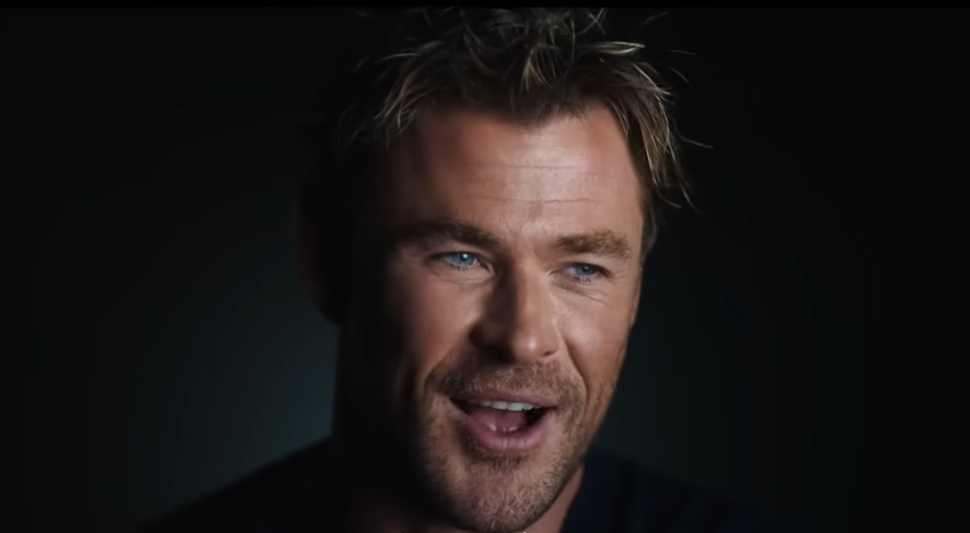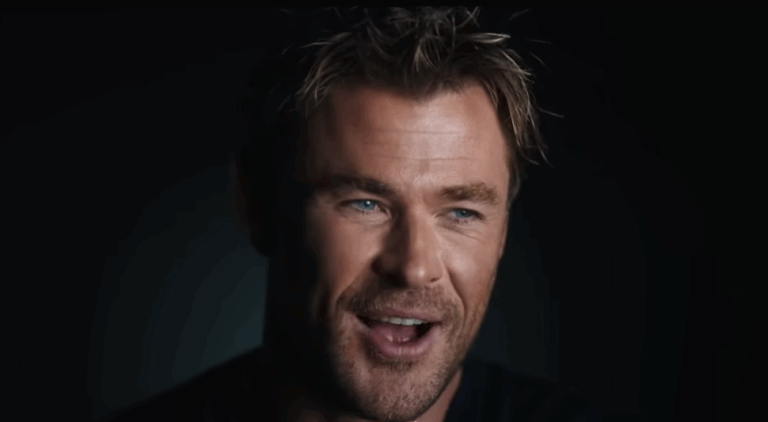The name Chris Hemsworth typically evokes visions of action-packed blockbusters and mythological strength. However, beneath the Hollywood glamour, the actor experienced a profoundly intimate and sobering experience. He underwent a genetic screening while filming the documentary series Limitless, which revealed an astonishing fact: he has two copies of the APOE4 gene, a rare combination that greatly raises his risk of Alzheimer’s disease.
Instead of flinching at the news, Hemsworth reacted with remarkable poise. Given the gravity of the information, he made the decision to halt not only the filming process but also the ongoing chaos of studio deadlines, scripts, and red carpets. Relocating to Byron Bay, where the pace is slower and the air feels more liberated, has allowed him to spend more time with his wife Elsa Pataky and their three kids. Although initially private, that choice eventually came to light, and it had a significant impact.
The APOE4 gene is a genetic predisposition rather than a diagnosis. Nevertheless, it’s a dramatic departure from the story that viewers anticipate from someone in Hemsworth’s position—internationally renowned, physically celebrated. Experts say people who have two copies of this gene are much more likely to develop Alzheimer’s. The news was personal to Hemsworth. The fact that his grandfather is presently afflicted with the illness lends an emotional urgency to the disclosure.
Chris Hemsworth: Bio and Career Summary
| Field | Detail |
|---|---|
| Full Name | Christopher Hemsworth |
| Date of Birth | August 11, 1983 |
| Age | 41 (as of 2025) |
| Place of Birth | Melbourne, Victoria, Australia |
| Nationality | Australian |
| Profession | Actor, Film Producer |
| Notable Roles | Thor (Marvel Cinematic Universe), Tyler Rake (Extraction), James Hunt (Rush) |
| Spouse | Elsa Pataky (married 2010) |
| Children | 3 |
| Years Active | 2002–present |
| Known Health Concern | Carries two copies of APOE4 gene, increasing Alzheimer’s risk |
| Source Link | Vanity Fair Interview |

In Limitless, this discovery did not result in a dramatic plot twist. The medical expert involved, Dr. Peter Attia, actually decided against sharing the results during filming because he was worried about how startling the moment would appear on camera. The findings’ emotional impact is highlighted by their delicate handling.
Hemsworth has made it clear time and time again since going public that he has not been given an Alzheimer’s diagnosis. He has been granted foresight, the chance to carefully and clearly reshape his future. He is now more concerned with longevity practices, stress reduction, quality sleep, cognitive routines, and social connections. Although these preventative measures aren’t groundbreaking, they are incredibly successful in enhancing brain resilience in general.
His choice to come clean is indicative of a larger willingness to deconstruct the ideals that are frequently placed on famous people. Hemsworth quietly transformed into a figure of strength in a completely different way by displaying vulnerability instead of upholding a flawless façade. It reminds me of Selma Blair’s openness about multiple sclerosis or Michael J. Fox’s persistent support for Parkinson’s research.
Hemsworth’s career could be redefined at this point. He has become much more picky about the projects he takes on, but he is not giving up acting. He is still able to use his creativity in films like Transformers One and Furiosa, but he now bases his decisions on meaningful, team-based experiences. A subtle but noticeable improvement in his perspective on success can be seen in the transition from high-octane roles to deliberate decision-making.
This iteration of Hemsworth may seem even more realistic to fans. Instead of being the untouchable superhero on screen, he is a man in his early 40s who is posing the same queries that many people have as they get older. What is most important? How can we not only live longer but also age well? How can we help tomorrow today?
APOE4 genetic testing isn’t common yet, in part because medical professionals are concerned that it could cause unwarranted anxiety. However, Hemsworth’s candor might alter that. By using his position to spread awareness without being alarmist, he is proving that knowledge can be empowering rather than paralyzing. Fear is not the issue. It all comes down to preparation.
Hemsworth has been open about how this experience changed his perspective in interviews. Time has become his most valuable asset. He is creating space for the things that nourish his soul, whether he is hiking with his children, meditating on the beach, or quietly resting far from the set.
He no longer only engages in on-screen combat. Off-camera, he is facing uncertainty with integrity, wit, and a profoundly human sense of purpose. Instead of being a tragedy, his story has evolved into a powerful argument for fortitude and proactive living. It’s important to keep in mind that script.


